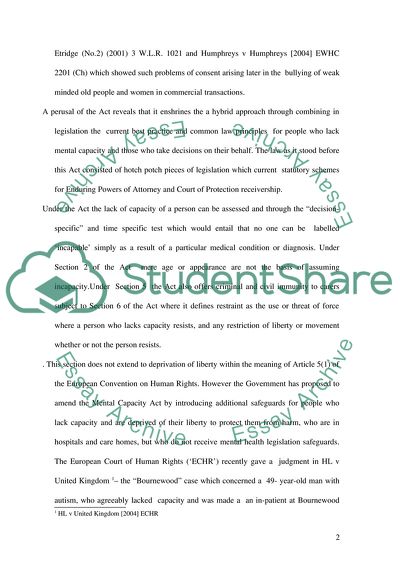Cite this document
(Changes as Seen by the Mental Capacity Act 2005 Essay, n.d.)
Changes as Seen by the Mental Capacity Act 2005 Essay. https://studentshare.org/law/1714241-mental-capacity-act-2005-uk
Changes as Seen by the Mental Capacity Act 2005 Essay. https://studentshare.org/law/1714241-mental-capacity-act-2005-uk
(Changes As Seen by the Mental Capacity Act 2005 Essay)
Changes As Seen by the Mental Capacity Act 2005 Essay. https://studentshare.org/law/1714241-mental-capacity-act-2005-uk.
Changes As Seen by the Mental Capacity Act 2005 Essay. https://studentshare.org/law/1714241-mental-capacity-act-2005-uk.
“Changes As Seen by the Mental Capacity Act 2005 Essay”. https://studentshare.org/law/1714241-mental-capacity-act-2005-uk.


